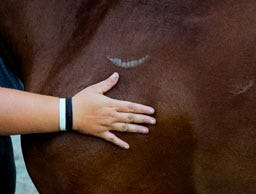Coping with the Loss of a Pet
Grieving the loss of a pet can be a very traumatic time for many. If you have found your way to this page, then let us start by saying how truly sorry we are for your loss. We at Pet Drugs Online are all pet lovers and the thought of someone being without their best friend is unbearable. Losing someone you love is never easy, especially when they bring nothing but joy, laughter, and unconditional love into your life, so we would like to offer you both our condolences and advice during this difficult time.
Here are some ways we’ve found that can help when grieving the loss of a close companion.
How to Cope With The Loss of a Pet
Understanding your grief. This is your brain’s natural way to deal with a loss, and while the feeling may be unwelcome, it’s completely normal and shows the strong bond you had with your pet. It can feel very overwhelming at times and lead to confusing emotions such as anger, sadness, guilt, or shock, which can begin to impact your daily life. Many who experience grief can experience changes in their appetite or sleeping pattern, and may struggle to complete everyday tasks.
This is normal. Even if you feel like no one around understands, it's important to remember that they do, and there are people around who want to help you through it in any way they can.
Saying Goodbye at the Vets
When you first get a pet you prepare yourselves for your life together; you buy toys and bedding, choose the ideal food and pick out the perfect name. What people rarely consider is what comes after. Unfortunately, most pets have a much shorter lifespan than we do, and there are a number of things that can impact that, such as illness and injury. This is something that every prospective pet owner should know before they take on the responsibility of bringing a pet into their lives.
It is the moral and ethical obligation for a vet to put an end to an animal’s pain and suffering if their quality of life has fallen below an acceptable point. Choosing to end a pet’s suffering with euthanasia is an incredibly distressing decision for both the vet and the owner and unfortunately often needs to be made quickly and under duress.
Don’t be afraid to ask your vet questions beforehand. They want to make sure that you are making the right choice for your pet and will be more than happy to offer advice and answer any questions you have.
Talking About Your Loss
It can be hard to reach out after a loss, but ultimately it’s the first step to helping overcome the feelings that are otherwise going to stay bottled up inside you. If you’ve lost a family pet, try talking to other family members who are struggling too and share your feelings, helping each other along the way. If you’ve lost your companion, reach out to a friend or family who knows what they meant to you.
If you’re not comfortable reaching out to friends or family, or you’d rather talk to someone impartial to your situation, there are a number of options available. You can book an appointment to speak with your GP (especially if your grief is affecting your health or day-to-day life), a counsellor or therapist, or even calling a pet bereavement line. Get in touch with the Blue Cross, a fully-trained team who provides free and confidential support for those grieving a pet.
Helping Someone Else Grieve the Loss of a Pet
If someone you know is grieving the loss of a pet, then it can be hard to know what to do, especially if you don’t have a pet of your own. The important thing to remember is to be patient. Everyone grieves in their own way, and even though it can be hard to see a loved one struggling, they need all the support they can get during this difficult time. Be there for them where you can and be supportive and sympathetic. Loss is loss, and it will affect everyone differently, but being a shoulder to cry on or offering a listening ear can be just the thing someone needs to help.
Helping Children Understand the Loss of a Pet
Losing a pet can be particularly hard for children as it may well be their first experience of death and they may not understand the feeling. In times like this, the best thing you can do is to be honest and open with them about what’s happened. It can be tempting to try and ease their suffering by using phrases such as “put to sleep” or “gone to a better place”, but this can make things even harder for your child. They might feel their pet left because of something they’d done or be confused about why they can’t go and visit.
Depending on how you manage the situation will depend on the child’s age and their understanding of death. Younger children may struggle to grasp why their pet is no longer around, or why you become upset when they ask. Older children tend to understand better, and may ask what’s happened to their furry friend. It’s best to have an open and honest conversation with them and help them come to terms with the sudden change in their life.
It may be tempting to get another pet to try and help your child cope with the loss, but this can complicate things further by delaying the healing process or causing conflicting emotions. It’s always best to wait until everyone in the family is ready before bringing home a new four-legged friend.
Ways to Remember Your Pet
It’s perfectly normal to want to commemorate the passing of a pet, whether it’s by holding a small funeral where you bury something of theirs (such as a collar, or a bed), or by scattering their ashes in their favourite walking spot, or just by taking some time to sit and remember them. As the grief begins to fade, you will be able to talk about all the good times you had with your pet, sharing any photographs you have and cementing their memory in your lives.
There are plenty of ways that you can remember and commemorate your pet, and what you choose to do will depend entirely on how much of a reminder you want of them, and your own personal preference. Some people choose to have an item of jewellery made with a picture of their pet or their ashes inside, while others donate to local animal shelters or have a tree planted in their pet's name. The possibilities really are endless when it comes to celebrating your pet’s life, it’s about finding what works for you and helps you make peace with the loss.
Losing a pet is never easy, and although we’re sure you’ve heard it before, it does get better with time. Soon, the pain of their passing will be another memory, and you can choose to focus on the happy ones full of life and love and laughter that made them such a staple in your family to begin with.
If you or someone you know is grieving the loss of a pet, we recommend reaching out to resources like the Blue Cross Pet Bereavement and Pet Loss Support line, or any family and friends who can support you during this difficult time.
This post is an opinion and should only be used as a guide. You should discuss any change to your pet’s care or lifestyle thoroughly with your vet before starting any program or treatment.












































